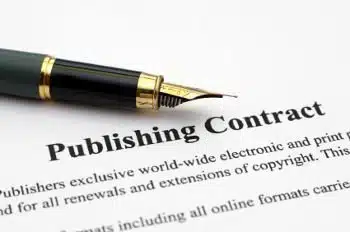Getting a book publishing deal may seem daunting, but it’s achievable with the right steps. Begin by crafting a compelling manuscript that stands out from the crowd. Research potential publishers and tailor your submission to their preferences. Networking plays a vital role, so attend literary events and connect with industry professionals. A well-written query letter can make all the difference, grabbing the attention of agents and publishers. Finally, persistence is key. Rejections happen, but they pave the way to finding the right match for your book. By following these strategies, you’ll be well on your way to securing a book publishing deal.
How to Get a Book Publishing Deal
Getting a book publishing deal is a dream for many aspiring authors. It takes a lot of effort, persistence, and a clear strategy. This guide will provide you with a comprehensive look at how to achieve this goal. Along with that, we’ll also cover how to cite a textbook properly, which is an essential skill for authors. We will explore the necessary steps, offer tips and advice, and equip you with the knowledge you need to secure a book publishing deal.
Understand the Publishing Process
Before you can secure a publishing deal, it’s essential to understand how the publishing process works. The steps include:
- Writing and revising your manuscript
- Finding an agent (optional but recommended)
- Submitting your work to publishers
- Negotiating a contract
- Marketing and promoting your book
Writing and Revising Your Manuscript
The first step is to write a complete manuscript. This requires dedication and perseverance. Here are some tips to help you through this phase:
- Set a writing schedule and stick to it.
- Join a writer’s group for feedback and support.
- Revise your work multiple times for clarity and flow.
- Consider hiring a professional editor.
Finding an Agent
While it is possible to submit your manuscript directly to publishers, having a literary agent can significantly improve your chances of success. Agents have industry connections and can negotiate better contracts. To find an agent:
- Research agents who represent your genre.
- Write a compelling query letter.
- Prepare a strong book proposal.
- Submit your query to multiple agents and follow up.
Researching Publishers
Finding the right publisher for your book involves research. Look for publishers that specialize in your genre and have a good reputation. Here’s how to go about it:
- Read books similar to yours to identify potential publishers.
- Check publishing directories and industry websites.
- Review publisher submission guidelines carefully.
- Attend writer’s conferences and events to network with publishers.
Submission Guidelines
Each publisher has specific submission guidelines. Failure to follow these can result in rejection. Common requirements include:
- Cover letter or query letter
- Synopsis of your book
- Sample chapters or full manuscript
- Author bio
Crafting a Compelling Query Letter
The query letter is your first point of contact with an agent or publisher. It needs to be compelling and professional. Key elements include:
Introduction
Begin with a strong hook that captures interest. Mention the title, genre, and word count of your book.
Summary
Provide a brief summary of your book. Highlight the main plot points and key themes without giving away the ending.
Author Bio
Include relevant information about your writing background and any previously published works.
Closing
Thank the agent or publisher for their time and indicate your willingness to provide more material if needed.
Writing a Strong Book Proposal
A book proposal is more detailed than a query letter and is usually required for non-fiction books. It typically includes:
- Title page
- Overview of the book
- Table of contents
- Sample chapters
- Marketing analysis
- Author bio
Title Page
Include the title of your book, your name, and your contact information.
Overview
Give a detailed description of what your book is about, its unique features, and its market potential.
Table of Contents
List the chapters along with a brief summary of each.
Sample Chapters
Provide a few sample chapters to showcase your writing style and the tone of your book.
Marketing Analysis
Discuss the target audience for your book and how it fits into the current market. Mention any potential competition and how your book stands out.
Submitting Your Proposal
When submitting your proposal, make sure it’s polished and professional. Follow these tips:
- Proofread thoroughly to eliminate errors.
- Follow the submission guidelines exactly.
- Keep a record of your submissions and follow up.
- Be patient and persistent.
Negotiating the Contract
If a publisher is interested in your book, they will offer a contract. Here’s what to consider:
- Rights: Understand which rights you are granting to the publisher.
- Royalties: Negotiate the percentage of sales you will receive.
- Advances: Some publishers offer an advance against royalties.
- Deadlines: Ensure you can meet the publication deadlines.
Marketing and Promoting Your Book
Once your book is published, marketing and promotion are crucial for its success. Here are some strategies:
- Social Media: Use platforms like Twitter, Facebook, and Instagram to promote your book.
- Author Website: Create a professional website to showcase your work.
- Book Signings: Arrange book signings and readings to engage with readers.
- Media Outreach: Send press releases to newspapers, radio stations, and blogs.
Social Media
Social media is a powerful tool for book promotion. Engage with your audience by:
- Posting regularly about your book and writing process.
- Hosting Q&A sessions and giveaways.
- Connecting with other authors and influencers.
Author Website
An author website serves as your online hub. Include:
- Information about your book.
- A blog to engage with readers.
- Links to purchase your book.
- Contact information.
Ultimately, getting a book publishing deal requires dedication and a proactive approach. By following these steps and staying patient, you increase your chances of seeing your work in print. Happy writing!
Frequently Asked Questions
What are the initial steps to take when seeking a book publishing deal?
Start by polishing your manuscript. Make sure it is professionally edited and formatted. Research literary agents and publishers who specialize in your genre. Draft a compelling query letter that includes a brief synopsis of your book, your background, and why you think your book is a good fit for them. Submit your query to multiple agents or publishers and be prepared for any feedback or requests for additional materials.
How can I find a suitable literary agent for my book?
Begin by identifying agents who represent books in your genre. You can find this information in directories, online databases, and acknowledgment sections of books similar to yours. Review the agents’ submission guidelines carefully before sending your query. Personalize your query letter to each agent, highlighting why you believe they are a good match for your book. Networking at writing conferences and participating in writing groups can also help you connect with agents.
What should I include in a query letter to attract publishers?
Your query letter should be concise, typically no more than one page. Include a strong opening that grabs attention, a brief synopsis of your book, and your relevant credentials. Mention why you chose to approach that particular publisher or agent. Close with a polite thank you and your contact information. Proofread your letter carefully to avoid any errors.
How important is an author platform in securing a book deal?
An author platform can significantly enhance your chances of securing a book deal. Publishers look for authors who have an established audience or the potential to build one. This includes having a strong presence on social media, a personal website, a mailing list, and any previous publications. Engaging with your audience and demonstrating your ability to market your book are crucial aspects of your platform.
What should I expect during the book deal negotiation process?
During negotiation, you will discuss terms such as advance payments, royalty rates, rights, and deadlines. An experienced literary agent can help navigate this process and advocate for your interests. Be prepared to compromise, but also know your non-negotiables. Once an agreement is reached, ensure you understand all the terms before signing the contract.
Final Thoughts
Securing a book publishing deal involves understanding your target market, crafting a compelling manuscript, and building a strong author platform. Research publishers and agents who specialize in your genre. Tailor your query letters to each recipient’s preferences. Persistence and networking within the writing community can also open doors. Finally, remain patient and resilient. With dedication, landing a book publishing deal is within reach.

